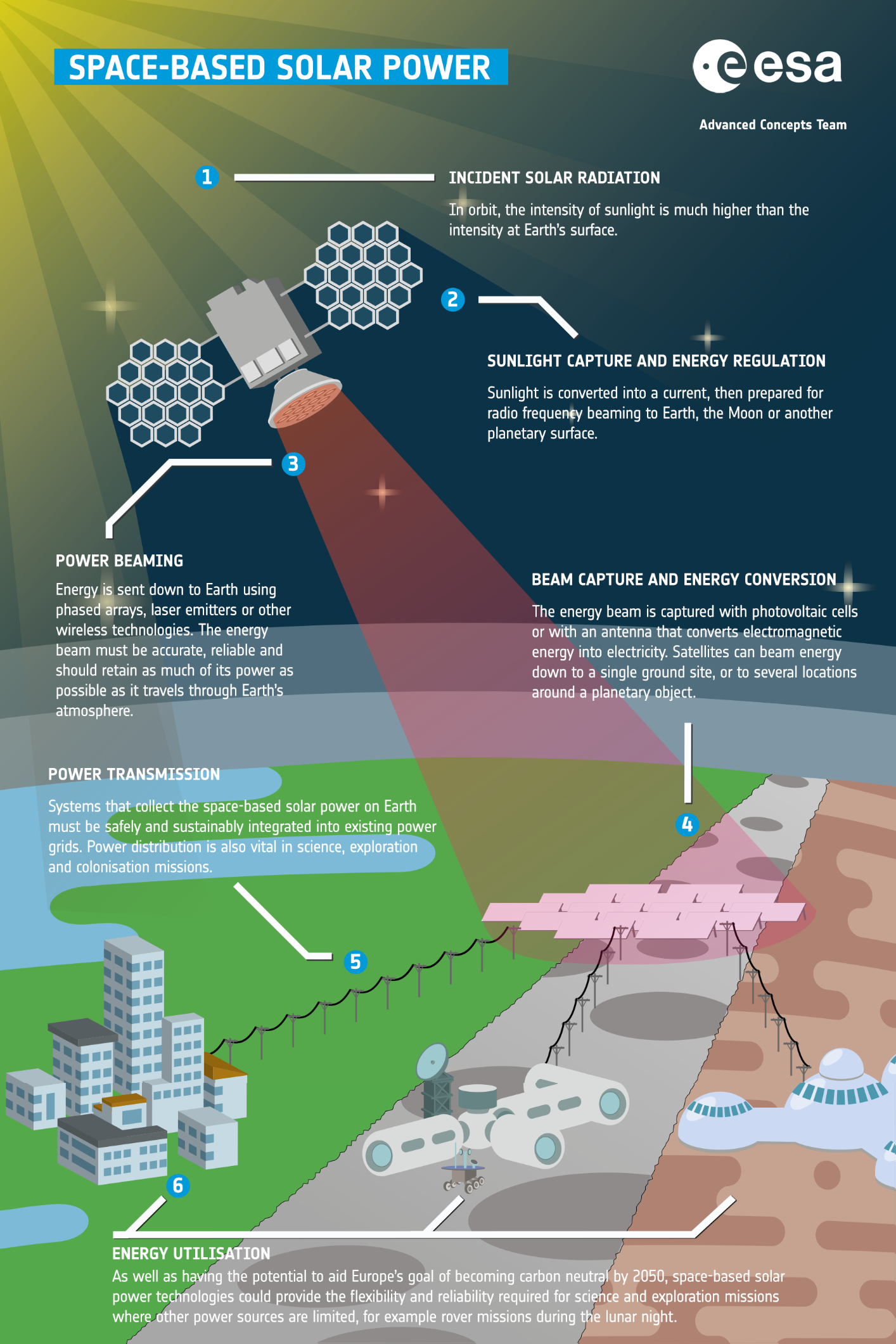
The amount of energy coming from solar power plants has grown exponentially during the 2000s , but it may still be just a mild westerly fan compared to what it may look like in the future. The European Space Agency ( ESA) has begun investigating whether it is possible to build large solar satellites in space .
The idea is that the satellites will have huge solar panels that collect the solar radiation and convert it into electricity. The electricity is then used to send energy down to earth via laser or some other form of wireless energy transmission.

There are many benefits to capturing the sun’s rays in space instead of on the earth’s surface. For example, a satellite can be placed so that it has access to sunlight around the clock. In addition, the earth’s atmosphere absorbs and reflects some of the sunlight. If the power plant is in space, it will therefore have access to more solar energy than power plants on earth.
The idea itself is anything but new. The legendary space scientist Konstantin Tsiolkovsky presented the concept 100 years ago. But the practical difficulties have so far made solar power plants in space a dream.
One problem with solar power plants in space is that they have to be very large to be efficient. These can be facilities that are ten square kilometers in size. Or it’s about sending up thousands of smaller facilities into orbit.
This has been practically and financially impossible to build before, but now it is starting to look a little more realistic. One reason is that new reusable rockets make it much cheaper to send material to orbit.
But there are other problems as well. For example, energy transfer from space to Earth must be efficient enough for power plants to be cost-effective. In addition, there must be some way to repair and maintain the power plants in a smooth way.
It is in these areas, among others, that ESA wants to come up with new ideas . Therefore, ESA has now opened up for researchers to come up with proposals on how the challenges of space-based solar power plants can be handled. The best proposals will receive funding from ESA and can then help us in a few decades or so to have access to as much environmentally friendly energy as we can get rid of.





